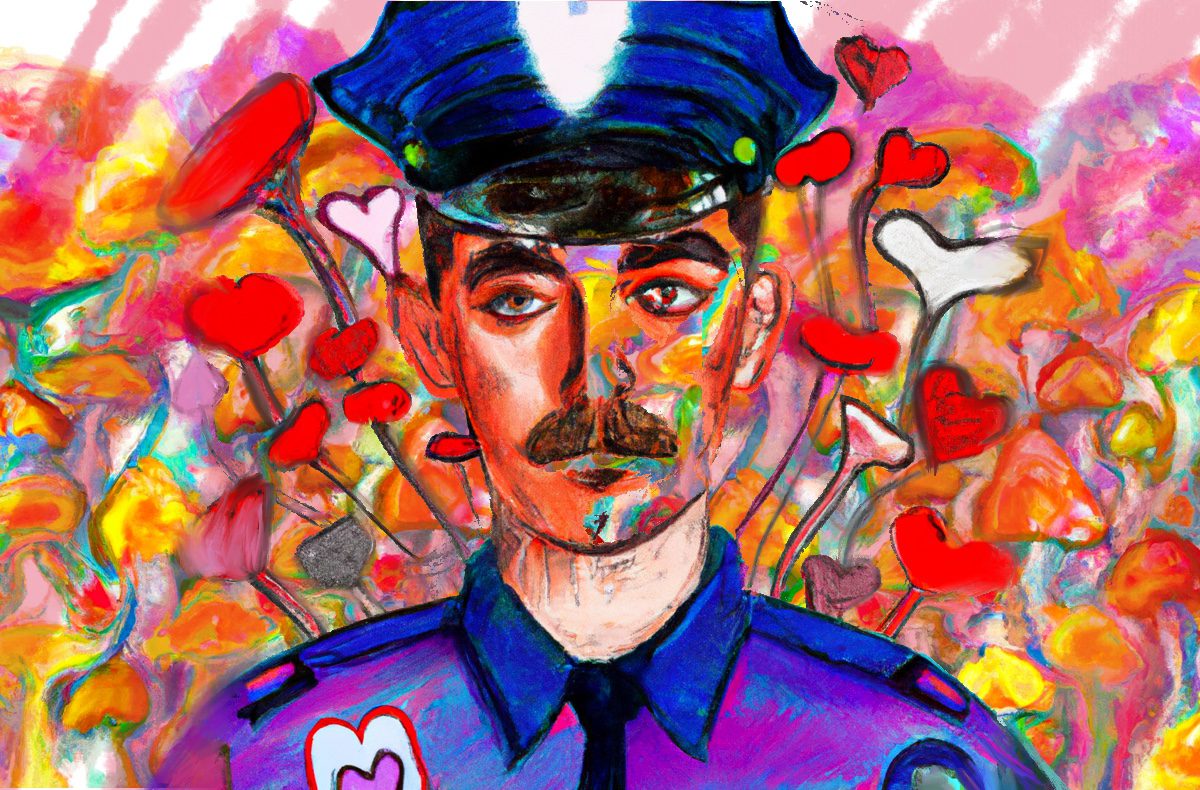
International drug policy has long been a catastrophe for many reasons. It has caused countless deaths, championed and empowered racists, and trampled over human rights. It enables autocratic demagogues and dictators. And it is also preventing climate action. Yes that’s right, the War on Drugs is helping to destroy our planet.
I’m not referring to the obvious harms caused by current drug policy, like the prevention of hemp cultivation, or the aerial Glyphosate spraying of Latin American rainforests, or the water-guzzling poppy farming. I’m not referring to the by-products of MDMA production causing the biological destruction of rivers in the Netherlands, or the use of carcinogenic solvents in ephedra processing in Pakistan and Afghanistan.
I’m talking about the all-encompassing corruption directly caused by drug prohibition.
At COP26, the bad boy in the news was Australia for their championing of continued coal use. Stupid and self-serving as the Aussie position is, at least their intractability around coal could attract actual action in the shape of sanctions. Unlikely perhaps, but the point is that there is a political route to bring influence, to change that dangerous nonchalance Down Under. And of course, an election has just happened, so it’s possible that Murdoch-sponsored climate change denial might be sidestepped if a different government is elected in the land of coal and sun.
The point is that we know who to talk to. Who to pressure. But more important than the burning of coal is global deforestation. Rainforests cannot be replaced. There is no lung transplant for this cancer.
At COP26, much was said about the pledge to end deforestation, especially in vulnerable tropical and subtropical forests. And there was much commentary querying why this pledge should be any more successful than previous similar promises. The answer being, no. Of course it won’t. Because the wrong people were around the table. The people we should have been negotiating with are the leading figures from transnational drugs organised crime. Either we talk to those in power, or we change who has that power.
The governments of Brazil, Guinea, and many other equatorial nations can make whatever pledges they like. But they don’t control their own backyard. This is because the prohibited drug markets have been corrupting the world’s governance for decades.
Let me explain how prohibition has taken the world on an accelerating journey of corruption and the dominance of criminals.
If a law enforcement agency has a “success” against a gang or cartel, this creates opportunities. A momentary gap in the market. Any business academic will tell you that disruption is key to market growth. Drug markets differ only in one significant aspect; growth created by disruption often creates violence where the opportunity is fought over, and the result of this violence is the creation of monopolies or cooperatives higher up the food chain of drug supply and distribution. An increased share of the market and a growth in business turnover means more disposable income. And businessmen in the illicit drug trade always invest this windfall in corruption.
Look at Mexico. There used to be twenty cartels. Now there are three. And they have a greater GDP than most West African nations.
There have been five military coups in West Africa in the last year. “Nothing new,” I hear you say, “poverty and inequality have fuelled such instability for decades.” But what is new is that at the heart of these coups is the desire for access to the wealth from drug transit routes—who gets paid the bribes. Because Transnational Organised Crime now corrupts entire governments, rather than individual officials. It’s a much more efficient business model for the age of the super-cartel.
“Prohibition is the mother of crime,” observed Ian Fleming. He was correct. And many law enforcement agencies around the world quietly note the same thing. The vast wealth from the illicit drug economy makes other crimes possible. It is reinvested, spurring increased power of criminal governance. Money is laundered through deforestation, amongst other acts of environmental exploitation. But because official governance has been so severely eroded, these crimes are doubly possible because those palms of authority are already greased. More than greased, they are owned. Completely.
It is implicitly understood that those engaged in the war on drugs will not allow admission of its failure—not in the realm of international diplomacy. This vacuous dishonesty makes meaningless any pledges to “save the rainforests” by those nations who squirm under the control of drug cartels.
The Global Initiative on Transnational Organised Crime (GITOC) has called the growing power of organised crime the biggest threat to our security and our democratic way of life. What also needs to be understood is its impact on climate justice. Clearly, where the climate crisis creates instability in the future, organised criminals are already well placed to take advantage of that.
Let’s take a moment to be really clear here. The security and corruption problem happens because cartels are rich. They are rich because of drug prohibition.
The drug war was always ideological madness. We have to stop it. Urgently. We must act to stop the corruption. Legally regulate the drug markets and we take the power away from criminals. My fear for the future is that staunch prohibitionists will remain in power and continue to dictate drug policy. They will still be demanding a drug-free world as the world burns and drowns around them.
I’m part of the international movement the Law Enforcement Action Partnership. Our networks are worldwide, and it is through these networks and our collective experience that we glean an understanding of the shape of Organised Crime. But functioning law enforcement agencies also need to be briefing the public about these realities. If we had more honesty in the public domain, we would have more rapid change.
Many of my comrades in the environmental movement are reluctant to acknowledge the impact of drug prohibition because they see it as a risky subject; something that will damage the reputation of their noble cause. We do not have time for squeamishness and willful ignorance. We need to become one movement. Quickly. Time will tell if we do this quickly enough.



